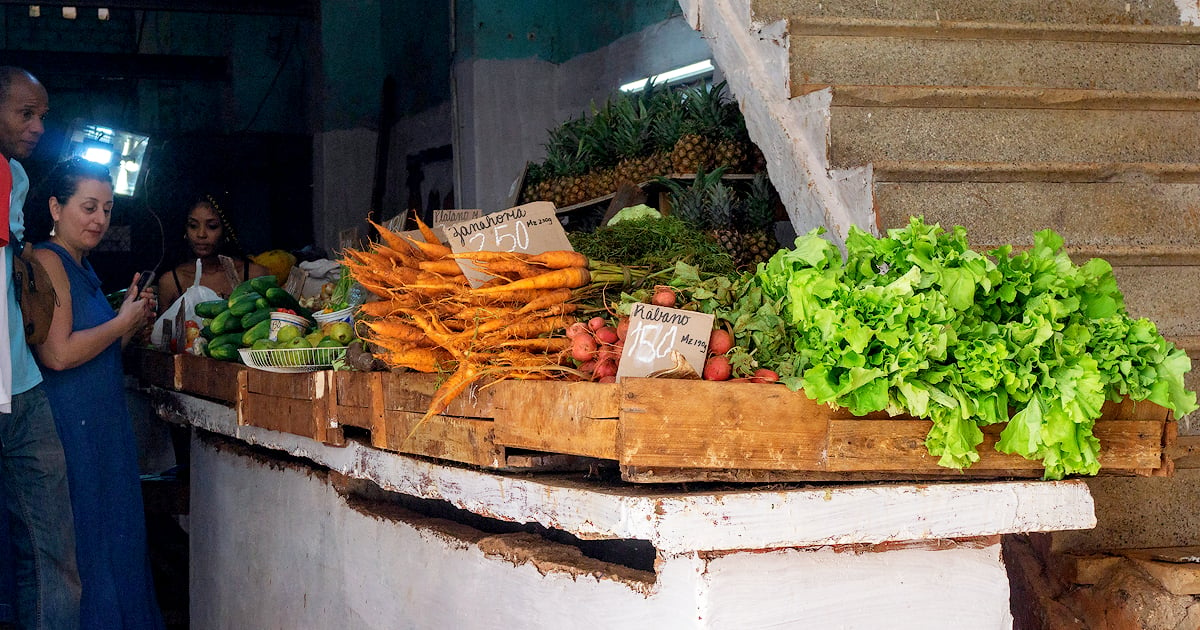Cuban economist Pedro Monreal has painted a bleak picture for the island's economy, forecasting a scenario of stagflation in 2024. This situation involves a shrinking Gross Domestic Product (GDP) combined with double-digit inflation. Contrary to the optimistic declarations from the Ministry of Economy and Planning (MEP), Monreal argues that data reveals an economy plagued by structural imbalances and a rigorous fiscal austerity policy.
In a thread on the social media platform X, Monreal accused the MEP of distorting reality by presenting what is essentially a process of stagflation as "macroeconomic ordering." According to his predictions, the Cuban economy will experience a decline in 2024, accompanied by an annual inflation rate of 25% to 30%. Although these numbers might suggest a slight improvement compared to 2023, they still indicate a severe imbalance.
Stagflation is an economic phenomenon characterized by the simultaneous presence of high inflation and economic stagnation or decline, posing a significant challenge for any economic strategy. Monreal emphatically pointed out that this situation contradicts the purported macroeconomic progress claimed by the Cuban regime.
Fiscal Austerity as a Core Strategy
A central aspect of Monreal's analysis is the reduction of the budget deficit, initially projected at 147 billion pesos for 2024, now reduced to 29.7 billion by October. However, Monreal claims this apparent achievement was realized through a drastic cut in public spending rather than an increase in revenue, which would be expected in a healthy economic environment.
He supported his analysis with historical figures showing public spending as a percentage of GDP, which fell from 66% in 2017 to just 39.2% in 2023, according to the National Office of Statistics and Information (ONEI). This, Monreal states, is a textbook example of fiscal austerity implemented during two consecutive years of GDP contraction.
Impact of Reduced Public Expenditure
The consequences of this severe reduction in public spending are evident in the deterioration of economic and social indicators. Workers' compensation as a percentage of GDP, which peaked at 46.3% in 2020, plummeted to only 18.8% in 2023, as also reported by the ONEI. This reflects the loss of purchasing power for workers in a high-inflation environment.
Monreal emphasized that this fiscal austerity policy not only deepens economic problems but also exacerbates social inequalities in a country where the average salary is insufficient to meet the basic needs of the population.
Persistent Inflation
Even though a reduction in inflation is anticipated for 2024, Monreal highlighted that the level remains "very high." In 2023, annual inflation exceeded 40%, according to ONEI data, and while a moderation is predicted, it still signifies a structural imbalance that severely affects citizens' access to basic goods and services.
For the specialist, the Cuban regime's announcements regarding supposed macroeconomic "ordering" are a narrative designed to distract from the harsh austerity measures currently underway. The combination of economic decline with persistent inflation underscores the government's inability to implement structural reforms addressing the core issues of the Cuban economy, Monreal concluded.
Understanding Cuba's Economic Challenges
What is stagflation?
Stagflation is an economic condition characterized by high inflation coupled with stagnation or decline in economic growth, making it particularly challenging to address.
How has fiscal austerity impacted Cuba's economy?
Fiscal austerity in Cuba has led to significant cuts in public spending, resulting in deteriorating economic and social indicators, reduced purchasing power for workers, and increased social inequalities.
Why is inflation still a concern in Cuba for 2024?
Although a reduction in inflation is expected, it remains at a high level, indicating persistent structural imbalances that affect the availability and affordability of basic goods and services.
